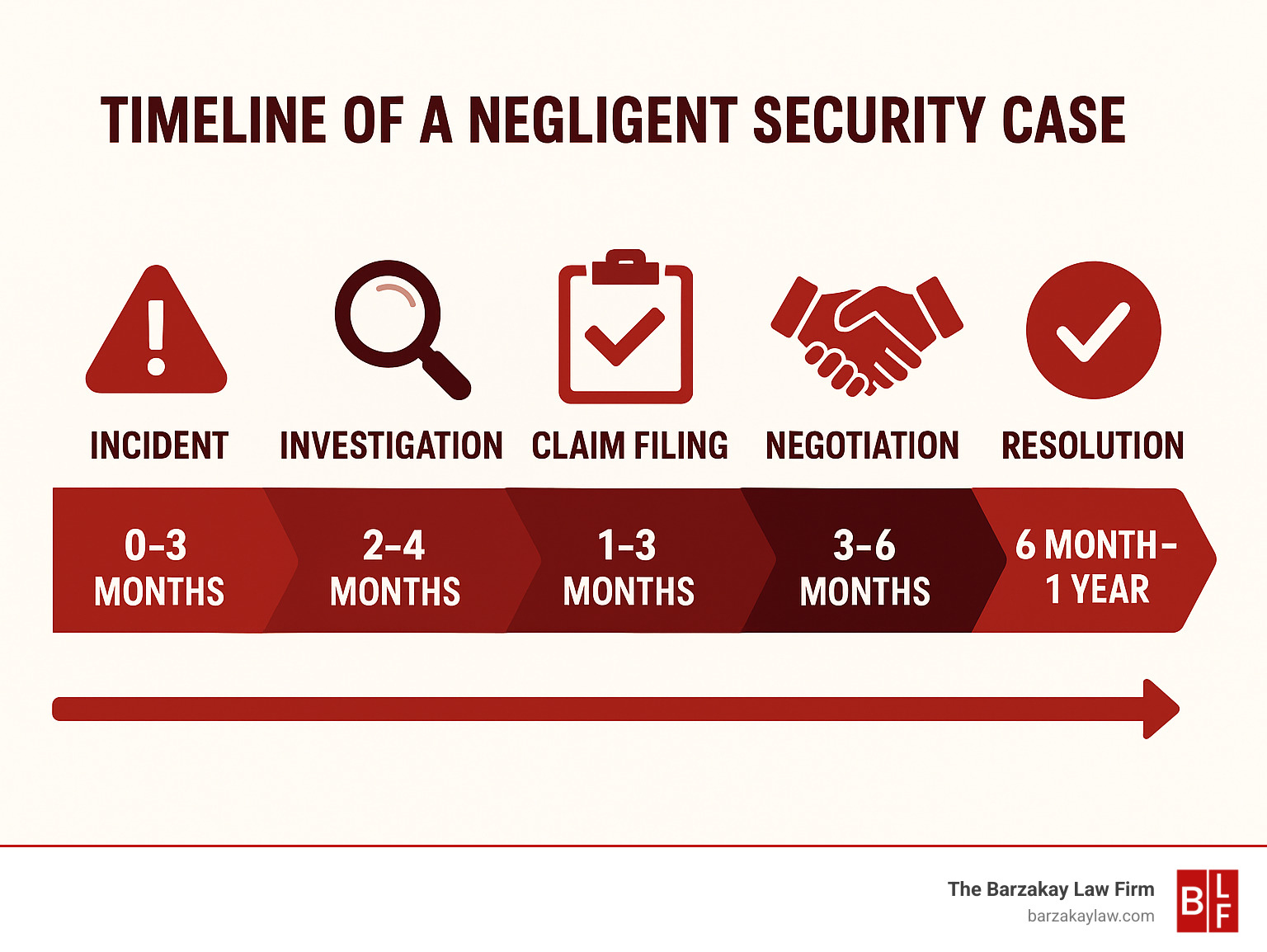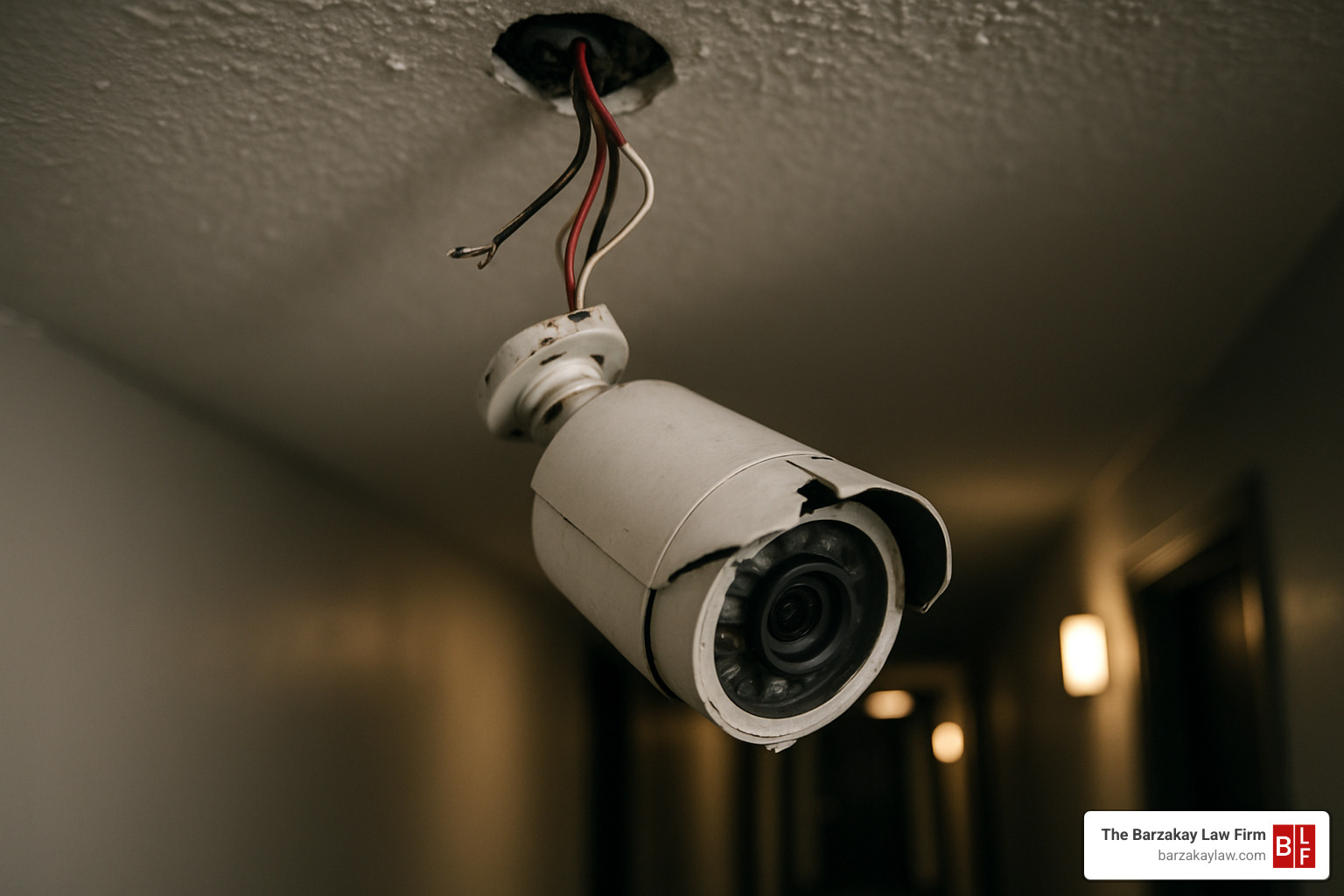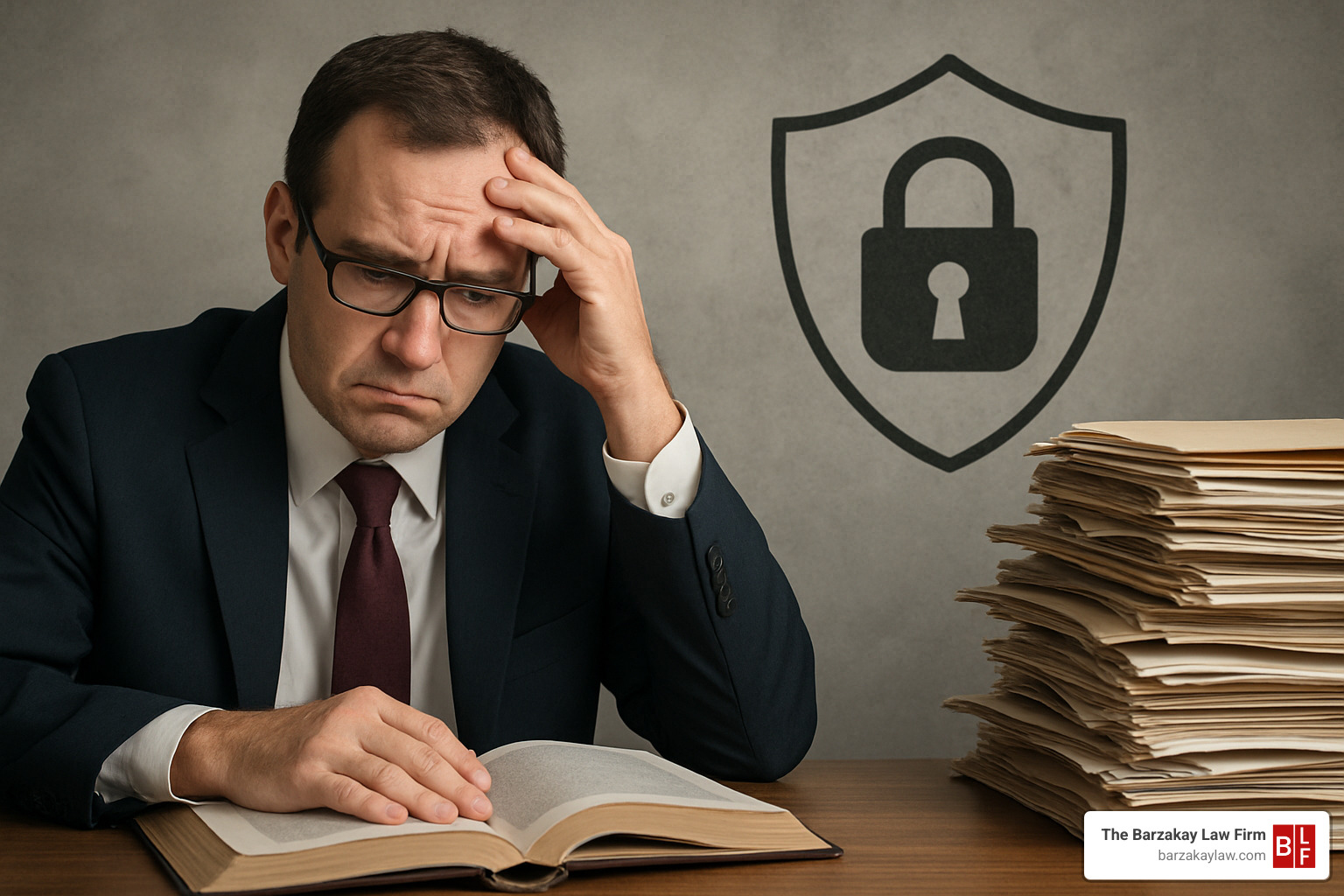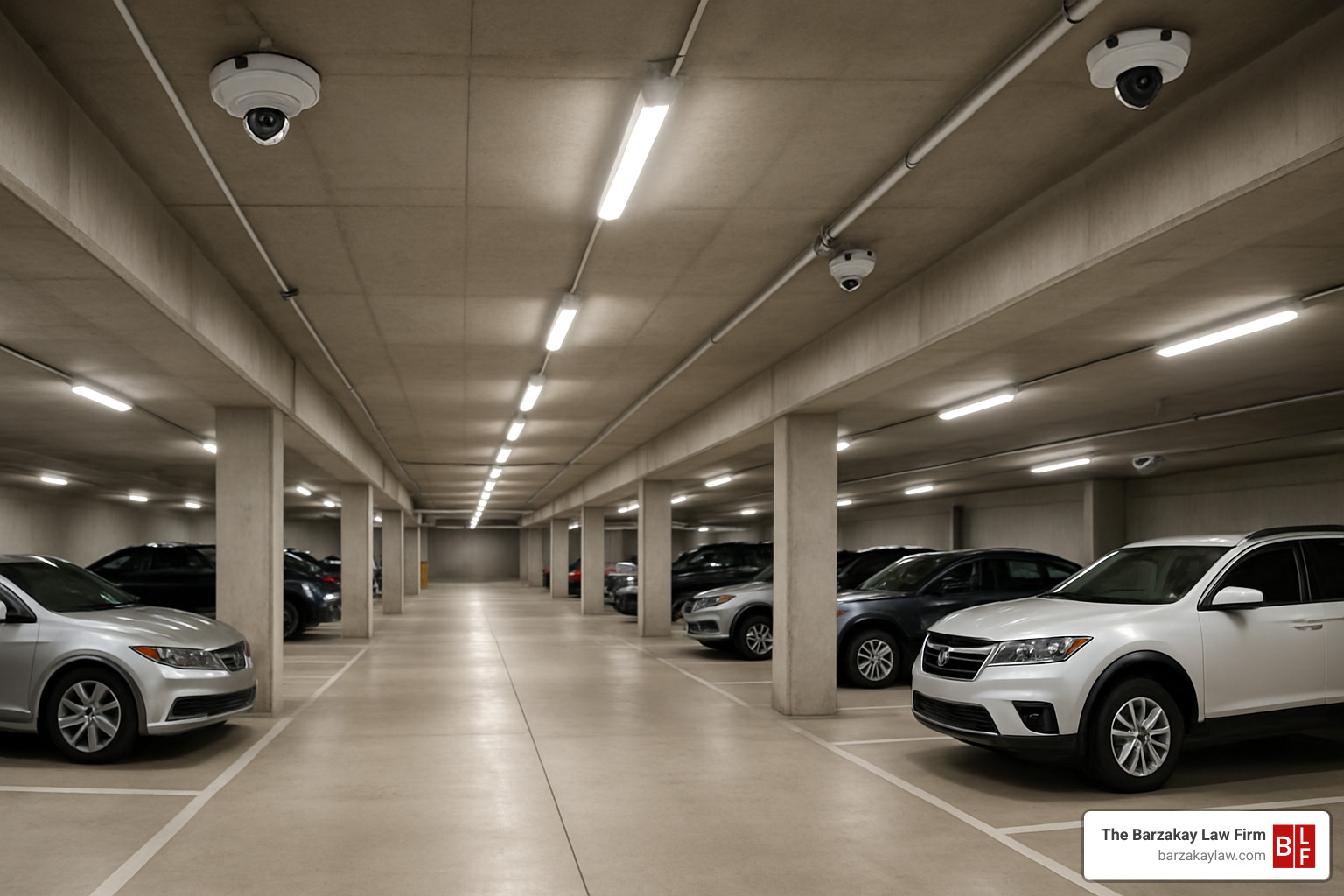When Safety Measures Fail: Understanding Your Rights
Inadequate security lawyers are legal professionals who help victims seek compensation when they’re injured due to a property owner’s failure to provide reasonable security measures. These specialized attorneys handle cases where crimes or injuries occurred because a property owner neglected their duty to keep visitors safe.
Quick Answer: What Inadequate Security Lawyers Do
- Represent victims of crimes that occurred due to insufficient security measures
- Prove property owners failed to provide reasonable protection against foreseeable crimes
- Help recover compensation for medical bills, lost wages, pain and suffering
- Work on contingency fees (typically no upfront costs)
- Handle all aspects from investigation to settlement negotiation or trial
When you enter a business, apartment complex, or any property, you expect a reasonable level of safety. Unfortunately, a murder occurs every 35 minutes in the United States, and many violent crimes happen in locations where better security could have prevented them.
If you or a loved one has been injured because a property lacked proper lighting, functional locks, security cameras, or trained guards, you may have a valid inadequate security claim.
These cases fall under premises liability law, which holds property owners responsible for maintaining safe environments. When they fail to address known security risks—like broken locks in a high-crime area or poor lighting in a parking garage with a history of assaults—they can be held legally accountable.
For grieving families seeking justice after losing a loved one, these lawyers provide compassionate guidance through the complex legal process while fighting for fair compensation to cover medical bills, funeral costs, and other damages.
What Counts as Inadequate Security & Where It Happens
When you walk through a dimly lit parking garage or notice a broken lock in your apartment building, you’re witnessing what could be inadequate security. At its heart, this issue involves property owners failing to take reasonable steps to keep you safe from harm they should have anticipated. In 2022 alone, inadequate security situations reportedly cost businesses around $1 trillion in revenue—a number that shows just how widespread and serious this problem really is.
You might encounter inadequate security in many forms. Picture walking to your car at night through a parking lot with burned-out lights, or entering an apartment building where the front door lock has been broken for weeks. These situations aren’t just inconveniences—they’re potential safety hazards that property owners have a responsibility to address.
Common security failures include poor or broken lighting in hallways and common areas, malfunctioning locks on doors and windows, broken security cameras (or none at all), untrained or insufficient security personnel, failure to address previous incidents, inadequate access control systems, and damaged perimeter fencing that should keep unwanted visitors out.
These problems can happen almost anywhere, but they’re especially common in apartment complexes, hotels, shopping centers, parking facilities, college campuses, bars, hospitals, office buildings, gas stations, ATM locations, sports venues, and public transportation hubs.
A key factor in these cases is “foreseeability”—whether the property owner knew or should have known about potential risks. Tools like crime mapping help identify patterns of criminal activity in specific areas, showing where property owners should reasonably expect problems and take appropriate precautions.
Typical Crimes That Spark Claims
Inadequate security lawyers typically handle cases involving serious crimes that result in significant injuries or trauma. When security fails, the consequences can be devastating.
Physical assaults happen when properties lack proper security staff or preventative measures. Robberies often occur in poorly lit areas without proper surveillance. Sexual assaults tragically take place where locks are broken, lighting is poor, or security staff is absent. Shootings and stabbings can happen when properties in high-crime areas don’t implement appropriate security measures. Even kidnappings can occur in places like hotels or apartment complexes with inadequate access control.
The injuries from these incidents can change lives forever. CDC data shows that assault victims commonly suffer sprains and strains (36%), contusions (27%), and upper trunk injuries (10%). Many also experience more severe trauma including head injuries, fractures, and lasting psychological damage.
Property-Owner Duties Under the Law
Property owners have legal obligations to keep visitors reasonably safe from foreseeable harm. This duty changes based on several factors: the type of property, its location and surrounding crime rates, history of criminal incidents, and the relationship between the owner and visitor.
Most state laws require property owners to take reasonable steps to prevent criminal acts they should anticipate. California Civil Code §1714, for example, requires property owners to maintain reasonably safe premises. Florida has similar requirements, though Florida Statutes §812.173 offers some “safe harbor” provisions for convenience stores that implement specific security measures.
What counts as “reasonable” security depends on the circumstances. A property in an area with high crime rates should have stronger security than one in a quiet neighborhood. A busy nightclub serving alcohol needs more security personnel than a small daytime retail store.
At minimum, property owners should maintain adequate lighting, ensure all locks and security systems work properly, respond quickly to security complaints, warn visitors of known dangers, and add extra security measures when aware of specific risks.
When property owners fall short of these responsibilities, inadequate security lawyers help victims hold them accountable and seek the compensation they deserve for their injuries and trauma.
Building Your Case: Evidence, Negligence & Deadlines
Putting together a strong inadequate security case isn’t just about knowing what happened—it’s about proving it. Every successful claim needs to establish four essential elements:
- Duty of care – The property owner was legally obligated to keep you safe
- Breach of duty – They failed to meet this obligation
- Causation – Their failure directly led to your injuries
- Damages – You suffered real harm as a result
When you work with inadequate security lawyers, they’ll help gather the compelling evidence needed to build your case. This typically includes police reports documenting what happened, any available surveillance footage (which can be gold in these cases), and photos showing security problems like broken locks or poor lighting.
Your attorney will also look for maintenance logs that show neglected repairs, prior incident reports from the same property, and local crime statistics. These last pieces are particularly important for proving “foreseeability”—showing that the property owner should have known better and taken steps to protect you.
The clock starts ticking on your case the moment the incident occurs. Most states give you between 1 to 6 years to file your claim, with the Centers for Disease Control and Prevention (CDC) documenting that many victims face lengthy recovery periods. If your incident happened on public property, you might have as little as 90 days to provide notice to the government entity involved—miss this deadline, and you could lose your right to compensation entirely.
Gathering the Right Proof
The strength of your case often comes down to the quality of evidence your inadequate security lawyers can collect. Witness statements provide crucial accounts of what happened or ongoing security issues at the property. Your medical records document exactly what injuries you suffered and the treatment you needed.
Crime statistics and heat maps can be particularly powerful in court, as they visually show patterns of criminal activity that any reasonable property owner should have noticed and addressed. Your attorney might also bring in security professionals to testify about industry standards and how the property fell short.
Property records can reveal whether the owner knew about security problems through previous complaints or maintenance requests but failed to act. This kind of evidence can be particularly damaging to the defense’s case.
For a deeper dive into evidence collection strategies, check out our detailed guide on negligent security claims.
Statute of Limitations Snapshot
The time window for filing your inadequate security claim varies dramatically depending on where you live. Missing these deadlines can permanently bar you from receiving compensation—which is why talking to an attorney quickly is so important.
| State | General Statute of Limitations | Notes |
|---|---|---|
| Florida | 2 years | Recently reduced from 4 years |
| New Jersey | 2 years | Special notice required for public entities |
| Georgia | 2 years | Different deadlines may apply for property damage |
| Tennessee | 1 year | One of the shortest in the country |
| Minnesota | 6 years | Among the longest limitation periods |
| North Dakota | 6 years | Also has an extended filing period |
| Maine | 6 years | Matches the longest standard period |
Claims against government entities come with even tighter deadlines—sometimes as short as 90 days from when the incident occurred. These strict timelines make early consultation with inadequate security lawyers absolutely essential. The sooner you reach out, the better your chances of preserving your right to seek compensation for what happened to you.
Why Hire Inadequate Security Lawyers & How They Add Value
When you’re dealing with injuries from a security failure, having someone in your corner who truly understands these cases can make all the difference. Inadequate security lawyers bring a level of knowledge and resources that can transform your case outcome.
Think about it this way: while you’re focusing on healing, your attorney is busy building your case. They’re tracking down security footage before it disappears, interviewing witnesses while memories are fresh, and consulting with security professionals who can testify about what should have been done to keep you safe.
These attorneys understand the complex web of premises liability laws that vary from state to state. They know exactly what evidence matters and how to preserve it properly. When it comes to calculating your damages, they consider factors you might not even realize are compensable – from future medical treatments to psychological therapy for trauma.
Perhaps most importantly, inadequate security lawyers typically work on contingency fees. This means you don’t pay anything upfront – they only get paid if they win your case. This arrangement puts their interests in perfect alignment with yours: the better you do, the better they do.
At The Barzakay Law Firm, we handle every aspect of your case while you concentrate on what matters most – your recovery. Want to learn more about how we approach these cases? Check out our guide to negligent security claims in Miami.
Inadequate Security Lawyers vs DIY Representation
It’s natural to wonder if you could handle your claim yourself. After all, why pay a percentage of your settlement to an attorney if you don’t have to? But there’s a reason most successful inadequate security cases involve professional legal representation.
| Aspect | With Inadequate Security Lawyers | DIY Representation |
|---|---|---|
| Legal Knowledge | Deep understanding of premises liability law and security standards | Limited knowledge unless you have legal training |
| Investigation Resources | Access to security experts, crime analysts, and professional investigators | Limited to what you can afford and access personally |
| Evidence Collection | Know what to look for and how to preserve it properly | May miss crucial evidence or fail to document it correctly |
| Valuation | Accurate assessment of all damages, including future needs | Often undervalue claims, especially non-economic damages |
| Negotiation | Experienced in dealing with insurance tactics | Vulnerable to lowball offers and pressure tactics |
| Cost | Contingency fee (typically 33-40% of recovery) | No attorney fee, but likely lower overall recovery |
| Outcome | Statistically higher settlements and verdicts | Typically lower settlements or case dismissal |
| Time Investment | Minimal time requirement from you | Significant time commitment during your recovery |
The reality is stark: negligent security cases often settle for millions because of the serious injuries involved. Without proper representation, you’re likely to receive far less than your case is worth – if anything at all.
What to Do Immediately After an Incident
The moments following a security-related injury are critical. Taking the right steps can significantly strengthen your case down the road:
First and foremost, get medical help. Your health is the priority, and those medical records will become important evidence. Then, report what happened to the police – their report creates an official record that’s hard to dispute later.
Make sure you also notify the property management about what happened. This creates a paper trail showing they were aware of the incident. While you’re still on site (if possible and safe), take photos of any security problems you notice – broken lights, damaged locks, or missing cameras.
If anyone saw what happened, get their contact information before they disappear. And be careful about talking to insurance representatives – they’re trained to minimize payouts.
Save everything that might be evidence. That torn clothing? The broken personal items? Keep them. And perhaps most importantly, reach out to an inadequate security lawyer as soon as possible. Evidence in these cases can disappear quickly – sometimes deliberately.
For more specific guidance if you’re in the Hollywood area, our page on Security Negligence in Hollywood offers detailed information custom to local circumstances.
Compensation & Prevention Tips
When the unthinkable happens because someone didn’t take proper security measures, victims deserve fair compensation for what they’ve endured. If you’ve been injured due to inadequate security, you may be entitled to several types of damages that recognize both the financial and personal toll of your experience.
The compensation in these cases typically covers three main areas. First, there are the economic damages – these are the concrete financial losses you’ve suffered. Think medical bills that keep piling up, income you’ve lost while recovering, property that was damaged during the incident, and costs for rehabilitation. For some victims, home modifications or in-home care become necessary expenses too.
Then there are non-economic damages, which acknowledge the personal suffering that doesn’t come with a receipt. Pain and suffering can be profound after a violent incident. Many victims struggle with emotional distress and PTSD that changes how they move through the world. Simple pleasures – what lawyers call “loss of enjoyment of life” – may become difficult or impossible. For some, permanent scarring or disfigurement serves as a constant reminder of the trauma.
In cases where a property owner’s neglect was particularly shocking, courts may award punitive damages. These additional amounts aren’t meant to compensate you directly but rather to punish truly irresponsible behavior and discourage others from similar negligence.
Every case is unique, with compensation varying widely based on how serious your injuries are, how strong your evidence is, and several other factors. While some inadequate security claims settle for tens of thousands of dollars, others – especially those involving catastrophic injuries or death – may result in multi-million dollar verdicts.
For property owners reading this, there’s a better path forward than facing lawsuits. Preventing security problems not only protects you from liability but, more importantly, keeps people safe. Good lighting remains one of the most effective security measures – dark corners and shadows create opportunity for crime. Regular maintenance of security systems matters too; a broken camera can’t deter or document criminal activity.
Inadequate security lawyers often see cases where simple physical access control systems like keycards or proper locks could have prevented tragedy. Well-trained security personnel make a difference too – not just their presence, but their training in how to respond appropriately to threats.
Smart property owners conduct regular security assessments, keeping landscaping trimmed to eliminate hiding spots and staying informed about local crime patterns. When security concerns are reported, addressing them promptly shows care for visitors’ safety. Documenting all security measures and maintenance provides protection for everyone – both the people on your property and your business interests.
These preventative steps create safer environments where people can work, shop, and live without fear – the way things should be. When tragedy does strike because these measures weren’t taken, compensation helps victims rebuild their lives, and inadequate security lawyers ensure that responsibility falls where it belongs.
Frequently Asked Questions about Inadequate Security Lawyers
What do I have to prove to win my inadequate security case?
Winning your inadequate security case isn’t about complex legal theories—it’s about showing four straightforward things that tell the story of what happened to you:
First, you’ll need to show the property owner had a duty of care toward you. This simply means they were responsible for providing reasonable security to keep visitors safe.
Second, you’ll need to demonstrate they breached that duty by falling short on security measures. Maybe they ignored broken lights in a dark parking lot or failed to fix locks that didn’t work properly.
Third, and often the trickiest part, is proving causation—showing that their security failures directly led to your injuries. This is where foreseeability comes in. Could they reasonably have predicted something bad might happen based on previous incidents or the neighborhood’s crime patterns?
Finally, you must show you suffered real damages—whether physical injuries, emotional trauma, or financial losses from medical bills or missed work.
Inadequate security lawyers are particularly skilled at gathering the evidence needed to connect these dots. They’ll analyze crime statistics, bring in security experts, and investigate whether similar incidents happened nearby—all to show that with proper security measures, your injuries likely could have been prevented.
How long will my inadequate security case take?
When you’re recovering from trauma, waiting for legal resolution can feel like forever. While every case moves at its own pace, I can give you a realistic timeline of what to expect.
Most inadequate security cases take between 9 months and 2 years from start to finish. The journey typically looks something like this:
The first 3-6 months involve investigating what happened, gathering evidence, and officially filing your claim. During this time, your inadequate security lawyers will be collecting police reports, interviewing witnesses, and consulting with security experts.
The next 6-12 months usually focus on findy (where both sides exchange evidence) and settlement negotiations. Many cases resolve during this phase if the property owner recognizes their liability.
If your case needs to go to trial, add another 12+ months to the timeline. Courts in many areas face backlogs, and scheduling can take time.
Simpler cases with clear evidence might wrap up faster, while complex situations involving serious injuries or multiple responsible parties naturally take longer. Throughout the process, we’ll keep you informed about where things stand and what to expect next.
Can I sue the security company as well as the property owner?
Yes, and this approach often makes perfect sense. In many inadequate security cases, multiple parties share responsibility for what happened to you.
Property owners bear the primary responsibility for maintaining safe premises, but they’re not always the only ones who should be held accountable. If a security company was hired but failed to do their job properly, they may share liability too.
Security companies can be responsible if they:
* Sent guards without proper training
* Failed to conduct background checks on their employees
* Didn’t provide the number of guards they promised
* Ignored their own security protocols
* Responded poorly when incidents were reported
For example, if a guard was sleeping on duty when an assault occurred, both the property owner and the security company might share responsibility—the owner for not monitoring their contractor, and the company for their employee’s negligence.
Inadequate security lawyers carefully examine all relationships and contracts between property owners, management companies, and security providers. This thorough approach ensures all responsible parties contribute to your compensation and prevents any one defendant from shifting blame entirely to others.
By casting a wider net, we often uncover additional insurance policies that can help fully compensate you for what you’ve endured.
Conclusion: Taking the Next Steps
When security failures lead to preventable crimes and injuries, victims deserve compensation and accountability. Inadequate security lawyers play a crucial role in helping victims steer the complex legal process while fighting for the resources they need to recover.
If you or a loved one has been injured due to inadequate security measures, we encourage you to:
- Document everything – Take photos of security deficiencies, keep medical records, and gather witness information
- Act quickly – Be aware of statutes of limitations that could affect your right to compensation
- Consult with an attorney – Most offer free initial consultations to evaluate your case
- Focus on recovery – Let your legal team handle the complexities of your case while you heal
At The Barzakay Law Firm, we understand the devastating impact these incidents can have on victims and their families. Our team works on a contingency fee basis, meaning you pay nothing unless we win your case. We serve clients throughout Florida, with offices in Hollywood, Miami, Boca Raton, Sunrise, Orlando, and Fort Lauderdale.
For more information about our approach to inadequate security cases, visit our security negligence lawyer page.
You don’t have to face this challenging time alone. With the right legal support, you can hold negligent property owners accountable and secure the compensation you need to move forward.





